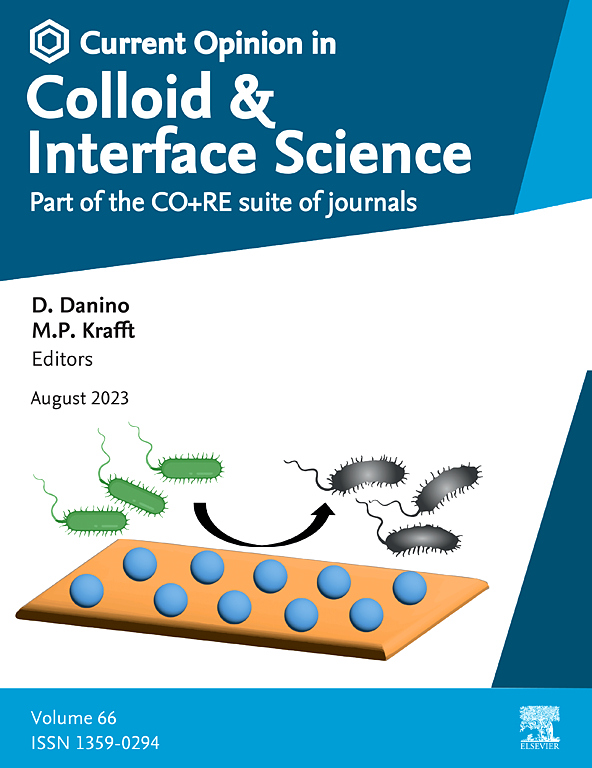Machine learning for food colloids: Novel tools to advance fundamental understanding, stability, texture, and processability
IF 7
2区 化学
Q1 CHEMISTRY, PHYSICAL
Current Opinion in Colloid & Interface Science
Pub Date : 2025-06-13
DOI:10.1016/j.cocis.2025.101937
引用次数: 0
Abstract
Evolving demands for healthier and more sustainable foods require reformulating ingredients and innovating production processes while maintaining sensory quality and shelf-life. Because traditional physics-based models struggle with the multi-scale complexity of food colloids, machine learning (ML) has emerged as a powerful alternative for predicting the behavior of these systems, in which dispersed components critically shape texture and functionality. This article highlights recent ML applications to enhance colloidal stability and rheological properties, demonstrating how supervised and unsupervised algorithms can capture complex, nonlinear relationships. Key examples include neural networks and chemometric models that predict emulsion stability, monitor microstructures, and forecast gel strength. We further discuss how ML-driven approaches reduce time-consuming experimental work and accelerate product innovation. Looking ahead, future opportunities lie in leveraging larger datasets, adopting inverse design strategies, and implementing insights from adjacent fields to deliver the next generation of data-informed, functional food colloids.

食品胶体的机器学习:促进基本理解,稳定性,质地和可加工性的新工具
对更健康和更可持续的食品不断变化的需求要求重新配制成分和创新生产工艺,同时保持感官质量和保质期。由于传统的基于物理的模型难以应对食物胶体的多尺度复杂性,机器学习(ML)已经成为预测这些系统行为的强大替代方案,在这些系统中,分散的成分对质地和功能的影响至关重要。本文重点介绍了最近在增强胶体稳定性和流变特性方面的机器学习应用,展示了监督和非监督算法如何捕获复杂的非线性关系。关键的例子包括预测乳液稳定性的神经网络和化学计量模型,监测微观结构,预测凝胶强度。我们进一步讨论了机器学习驱动的方法如何减少耗时的实验工作并加速产品创新。展望未来,未来的机会在于利用更大的数据集,采用逆向设计策略,并从邻近领域实施见解,以提供下一代数据信息,功能性食品胶体。
本文章由计算机程序翻译,如有差异,请以英文原文为准。
求助全文
约1分钟内获得全文
求助全文
来源期刊
CiteScore
16.50
自引率
1.10%
发文量
74
审稿时长
11.3 weeks
期刊介绍:
Current Opinion in Colloid and Interface Science (COCIS) is an international journal that focuses on the molecular and nanoscopic aspects of colloidal systems and interfaces in various scientific and technological fields. These include materials science, biologically-relevant systems, energy and environmental technologies, and industrial applications.
Unlike primary journals, COCIS primarily serves as a guide for researchers, helping them navigate through the vast landscape of recently published literature. It critically analyzes the state of the art, identifies bottlenecks and unsolved issues, and proposes future developments.
Moreover, COCIS emphasizes certain areas and papers that are considered particularly interesting and significant by the Editors and Section Editors. Its goal is to provide valuable insights and updates to the research community in these specialized areas.

 求助内容:
求助内容: 应助结果提醒方式:
应助结果提醒方式:


